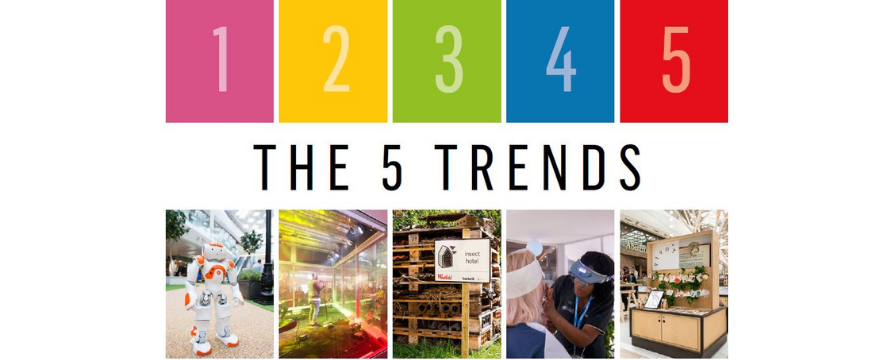
Ahead of the reopening of non-essential retail next month, Unibail-Rodamco-Westfield has unveiled new research on the impact of the pandemic on the future of retail. The report ‘Westfield How We Shop: What’s Changed’, shows how individuals and businesses have shifted their mindsets and values over the course of the year.
The in-depth consumer and retailer research explores how the impact of the past 12 months has shifted and accelerated five major retail trends. Community has emerged as a top priority, with there being a renewed focus on sustainability, health and experience. The findings suggest that local experiences will allow physical retail to thrive in 2021 and beyond. The study, which polled 2,000 UK consumers and 500 UK retailers, identified five major retail trends:
Anti-Prescription
Anti-Prescription was identified as a big retail trend in 2020, as 56% of consumers revealed that they were becoming frustrated by inaccurate recommendations served to them when shopping online, and in turn were craving free range browsing and impulse shopping. In contrast, 38% of customers claimed the same frustration in 2021 as they adapted to the e-commerce experience and retailers’ evolved online offerings. In keeping with this changed behaviour, Digital Bricks stores – those that converge the online and offline experience – are more in demand than ever, with a fifth of shoppers looking for in-store tech such as augmented reality to try on clothes when they return to the shops. Retailers are also reacting with 9 in 10 prioritising automation in-store. Over a third (37%) are aiming to make their stores contactless in the next 18 months, with social distancing and a new focus on health and safety acting as a catalyst.
Upside-Down Retail
Upside-Down Retail, i.e. experience-led stores, was identified as a key trend in 2020, with the tipping point coming in 2025. This is the point at which retailers allocate more square meterage to experiences over products. It is expected that more concepts based fully on experience will emerge such as Situ Live, a fully immersive product experience which combines the digital and physical aspects of shopping, which launches at Westfield London later this year. As consumers look to health services and experiences, over half expressed they now crave health services or experiences in a post-pandemic world, up 20% from last year.
Self-Sustaining Stores
Sustainability continues to be an ongoing focus for shoppers and retailers alike. The new report found that more than half of shoppers (57%) are more mindful of the impact of their online purchases on the environment. Additionally, 84% of UK consumers were interested in renting home products in 2021, showing a real appetite for leasing over owning, including items such as fashion, fitness equipment, technology, toys and games, furniture, and garden equipment.
Retail Surgery
It was predicted that the retail surgery market, dedicated to prescribing products for specific personal needs, was worth up to £40bn per month in the UK alone in 2020. The new report revealed that nearly half of all millennials (49%) would be willing to share their DNA for a better shopping experience (11% above the national average). The Plasma Donor centre and the Vaccination centre which both recently launched at Westfield Stratford City illustrates this change of use of shopping destination spaces which also act as key community hubs. The impact of Covid-19 has shown up strongly in this year’s research too with 78% of consumers now interested in health experiences and innovations in-store.
Locally-Morphed
As the population has been forced to reduce their travel footprint, more than half (52%) are shopping more locally than last year, with 49% of consumers wanting to buy locally sourced products. In line with this, 96% of the UK’s biggest retailers are considering introducing community initiatives in 2021, a vast shift from 2020.
Other key findings show:
- 49% of millennials are willing to share their DNA for a better shopping experience
- 9 in 10 retailers are considering introducing community initiatives in the next 18 months – accelerating the trend to turn shopping destinations into community hubs
- 57% of consumers are now more considerate of online purchases, due to factors such as excessive packaging
- 74% of Brits are expecting to see retailers adapt to their local surroundings as they re-open
Harry Wallop, Expert Retail Analyst said, “This report shines a fascinating light on how things changed so dramatically in 2020, and crucially which of these trends are likely to continue. Some of the trends, bubbling along for some time now, have been turbo-charged thanks to Covid-19: the shift online, the emergence of contactless stores; digital innovations such as robot assistants and interactive mirrors – dismissed by many as a stunt – are now being taken seriously.”
Scott Parsons, UK Chief Operating Officer for Unibail-Rodamco-Westfield said, “The past year has changed retail as we know it, and as we look to the future of shopping and leisure destinations, the How We Shop Report highlight’s the great opportunities that will emerge. Our research shows the potential rise of community integration with 96% of retailers considering introducing community initiatives in the next 18 months, whilst the focus the floorspace ratio of experience to product tipping point has been accelerated 3 years to 2022. Now, more than ever, Briton’s crave physical experiences, albeit in a new and different way, and I am confident that our London centres will re-emerge stronger than ever. Now, more than ever, Britons crave physical experiences, albeit in a new and different way, and I am confident that our London centres will re-emerge stronger than ever.”
Please click here to view the report along with further case studies and expert commentary.








